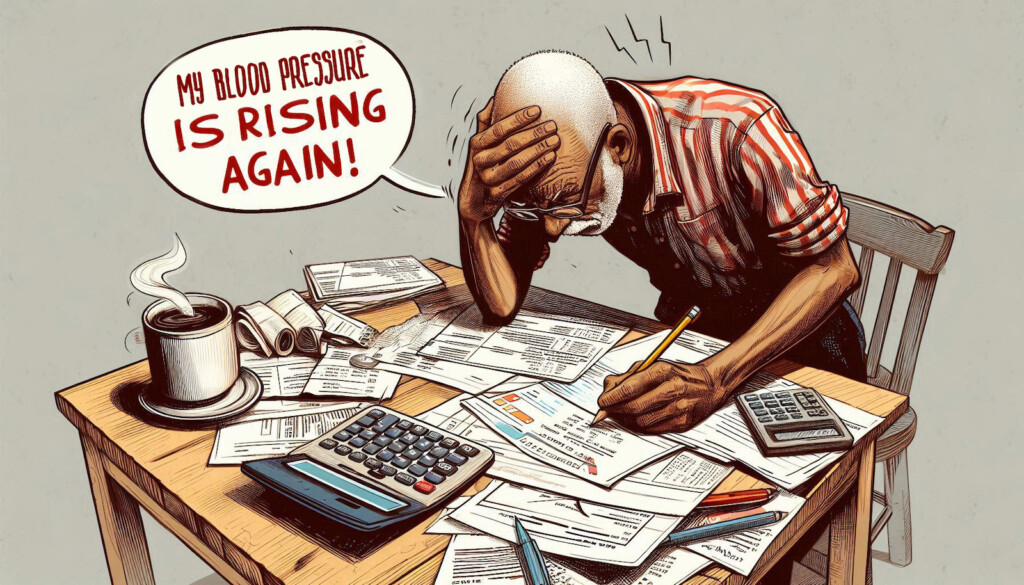In August 2022, a retired engineer in Heber got a jolt when he opened his property tax notice and saw a 166 percent jump in his home’s value and a 112 percent increase in how much he owed that year.
“Not one to necessarily lay down and be kicked, I started digging into the whole thing,” Bill Quapp said, as he put his analytical skills to work.
After reviewing 26,092 tax notices in Wasatch County, Quapp found that about two-thirds had been reassessed and had varying levels of tax increase, while roughly one-third had not been reassessed and actually enjoyed a tax decrease.
Quapp presented his data to the Wasatch County Council and the County Tax Assessor, but said “nobody seemed to particularly care.” And the State Tax Commission took no corrective action.
By November 2023, Quapp and three other plaintiffs filed suit in Utah’s 4th District Court against Wasatch County Tax Assessor Todd Griffin, and also the State Tax Commission.
Meanwhile, retired Sandy resident David Keough has been fighting his own property tax battle in Salt Lake County.
Keough and his wife bought their home in 2016, and said they remodeled the main floor that year, which cost about $60,000.
“In 2016 and 2017, the values dropped below what we paid for it, then they jacked it up $129,000 in 2018,” Keough said. “So I thought we were all done, but the 2019 value went up $29,700.”
At tax appeal hearings in 2018 and 2019, Keough said the home remodel was credited with causing both increases.
There were no changes other than what happened in 2016, but it was important to note that it was already included in the 2018 decision,” Keough said. “The same commissioner oversaw both hearings … so he was already educated. But then he allowed them to say [the remodel] was new for the 2019 tax year.”
Keough had brought proof of the 2016 renovation, but to no avail. He said he felt like he’d been treated like a “second class rat.”
Costly Litigation
Both Quapp and Keough became embroiled in time-consuming lawsuits against their respective county assessors and the State Tax Commission. And both are convinced that responsible entities failed to follow the law.
Keough, who is representing himself in court against several county and state defendants with high-powered attorneys, took issue with the appeal process, alleging that Salt Lake County tampered with evidence by removing photos of his 2016 home remodel during his 2019 tax appeal.
Quapp’s case focused on inequities that occur when all properties within a county fail to get reassessed every year using a computerized “mass appraisal process” as required by state law.
“The 34 percent they didn’t assess included all the commercial properties. They actually got about a 20 percent reduction in their taxes,” Quapp said.
Quapp reasoned that the 59 percent who faced large tax increases resulted in raising the capital value of the county, which caused the tax rates to go down.
“So Walmart had a nice chunk of money on their balance sheet that I and 15,286 of my closest friends helped pay for,” Quapp said.
Both Quapp’s and Keough’s cases have yet to be resolved. However, the State Auditor and Utah’s Office of the Legislative Auditor General recently dove into the equity dilemma and came up with recommendations to improve the system.
Systemic changes?
In 2023, Deputy State Auditor Tina Cannon oversaw development of a search tool designed to increase transparency in annual property values throughout the state. Anyone can view this color-coded database online at transparent.utah.gov/property.php.
And this April, staff in the Legislative Auditor General’s office released a 117-page report making the case for increased accountability and transparency in Utah’s property tax system.
The report revealed that in 2022, 17 of Utah’s 29 counties lacked enough sales data to reassess all taxable property based on current market value.
“The lack of available market data subverts the assessor’s pursuit of their Article XIII duties to value all tangible taxable property in proportion to its market value,” it concluded.
The report also said the Commission’s Property Tax Division needs additional enforcement mechanisms beyond the current corrective action letter that falls short of addressing root causes of noncompliance.
The report recommended more mass appraisal training for county assessors and staff, to better equip them to comply with statutes designed to ensure tax equity across the board.
The report also urged lawmakers to make real estate sales information publicly available, and concluded with the state Property Tax Division’s single recommendation to “provide assessors with the tools they need to succeed. This will ultimately fulfill the goal of a uniform, fair and equitable assessment system.”
Feature Image generated using AI.






